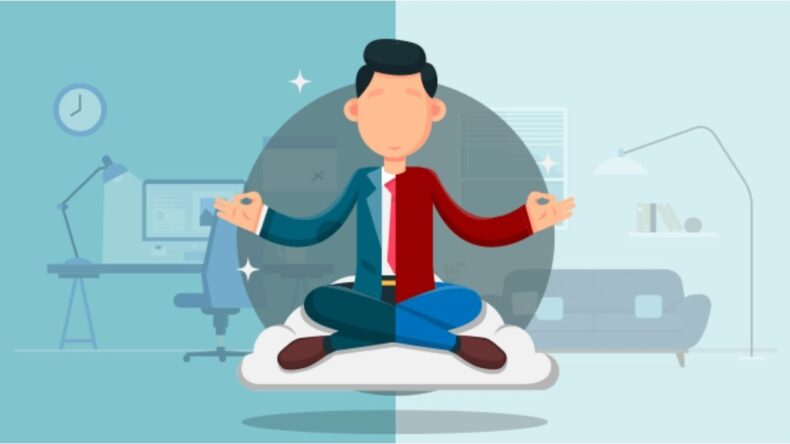There was short acclimatization towards work from home while millions of others lost their jobs. Jobs were categorized, and the risks of the virus led to the creation of “essential workers,” all of which made so look so uncertain.
More than a year full of all kinds of struggle has passed since Covid-19 was declared a pandemic by the WHO. Missed Convocations, virtual sendoff, a sense of helplessness while frantically sending SOS for medical supplies and the work culture has perhaps left an indelible imprint on our psyche.
Given the dynamic changes, it is pertinent to ask how has Covid-19 shaped our workspace and its impact on our lives.
In a detailed report, Oracle concluded that 2020 was the most stressful year ever – people were at a breaking point.
Workers everywhere were operating remotely for more than one year, ever since Covid-19 restrictions came into effect.
While this period undoubtedly improved business efficiency but well-being, on the other hand, is suffering; 94% of workers are stressed. 78% are believed to have been suffering mental health issues; 40% are making more flawed decisions, and 90% conclude that newfound work-related stress affects their home lives.
All of these indicators culminated in unprecedented levels of depression (up 53%), anxiety (up 55%), and even PTSD (up 32%), which is further exacerbated by a growing backlash against employee surveillance.
Doubly Difficult for Women
Things look grim for everyone and more so for women as they were pushed off the edge. The soaring unemployment inflicted women the hardest. Women were 1.8 times more prone to job loss than men.
The percentage of women in inadequately paid work was already high, which skyrocketed during the pandemic.
Additionally, they were inflicted by the responsibility of childcare, cooking, and cleaning etc. With women being engaged in the corporate, the burden of housework led to a decrease in their overall productivity.
Towards an Equitable Work-Life Balance
The first step to achieve work-life balance right is to set one’s priorities right. Every day one indeed has to do a lot of work.
However, it’s always possible to sort immediate and essential tasks from others. If you prioritize according to their importance, then a more calm and systematic output can be achieved.
Take Short Breaks
Frequent short breaks in the middle of the busy work schedule are necessary. This breaks the monotony and makes you more healthy and feel active.
Doing away with incessant yet less product output is less desirable than disjuncture yet high output. However, a lot depends on work style, which might differ for individuals.
Work and Rest Surrounding
Try not to waste time on personal things during work. By doing this, you will not be able to complete the work in the stipulated time of the office and will carry its burden to the house.
Only focus on office work while in the office. That way, one can handle personal responsibilities at home without stress.
If you keep yourself healthy and active, you will feel more effective physically and mentally. Go to bed on time and wake up early, exercise daily, meditate to tranquillize the mind.
Don’t Overburden
If you know your capabilities, then do not accept goals outside your ability because of hesitation.
You can politely tell your seniors that you will be able to take up a new job only after completing your current work. In this way, you will also be able to control the expectations you set for yourself.
Employers too can have a say in ensuring that their employees achieve a work-life balance. They can tweak the workplace to effectuate the transition of employees to a hybrid workstation is smooth and easy.
Alternative work schedules are other ways to adopt a fixed set frame that doesn’t gobble up employees.
Slowly but surely, companies will have to step up to embrace this messy situation and turn it into a new opportunity. The future is wide open for us.













